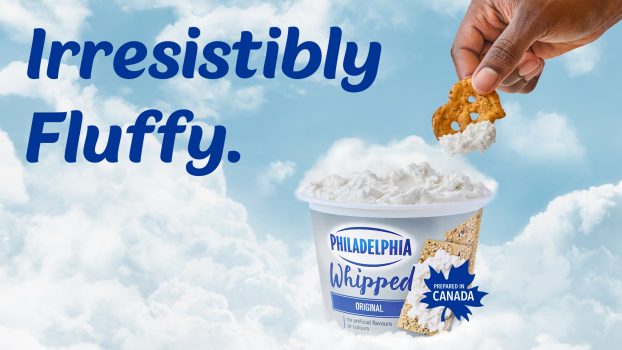After more than 20 years in the business, Toronto-based Yves Veggie Cuisine has emerged as a leader in the plant-based food category offering a range of vegan and vegetarian-friendly meals, according to senior brand manager Jackie Phillip. Earlier this year, it was named the most trusted vegan food brand by BrandSpark.
But looking to evolve the brand and continue growing its customer base, Yves Veggie Cuisine has turned to communicate to the emerging “flexitarian” market: people who continue to eat animal-based products but who have tried to reduce their overall consumption of them, or who are more open to going vegan or vegetarian a few days per week.
It is rolling out a refreshed brand and logo and is running a campaign until February that promotes plant-based eating as an easy and convenient way to eat healthier – a message many segments, but especially millennials, are eager to hear.
The shift in messaging comes as more attention is being paid to the various benefits of adopting a plant-based diet, says Phillip, from having an impact on animal welfare and the environment to getting the recommended daily intake of fruits and vegetables.
[iframe_youtube video=”wC8-b5M-He4″]
A recent study by Dalhousie University found that more than half of Canadians are interested in eating less meat and one third intend to reduce their meat consumption within the next six months. And the most common reason for doing so, the study found, was health. And companies are responding: like A&W, with its plant-based burger, or Maple Lead-owned Greenfield, which went “meatless on Mondays” earlier this year.
In deploying its new flexitarian-centred strategy, Yves Veggie Cuisine is working with agencies Chime Digital, Door Knocker Media and Overcat and has partnered with healthy eating influencers Lauren Toyota, Nikole Goncalves and Candice Hutchings, who together bring a broad perspective to what eating plant-based looks like. Goncalves, for instance, is not entirely vegan or vegetarian, but has embraced the diet as part of a healthy lifestyle.
The content-focused push includes a recipe strategy and influencer videos appearing on digital and social channels, as well as broadcast, as part of a larger partnership with Cityline. The idea is to inform on-the-fence consumers about the benefits of going plant-based, while maintaining the brand’s core vegan and vegetarian audience.
For the first time, the brand is also running a micro-influencer play through Overcat with the goal of reaching more millennials, who tend to be the category’s early adopters, Phillip says.
While the eating trend seems to have taken off in response to concerns around animal welfare and environment, which remain prevalent among many millennials, she says the biggest growth engine is how easy it has become for consumers to adopt plant-based diets as part of a healthier lifestyle, even if it is only on occasion.























